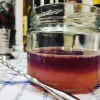Whether you’re using it to make cocktails or just enjoy on its own, you’ve probably wondered what kind of Vodka you should be using. Should you get something expensive and premium so you can have the “best” Vodka, or is there no difference? If there’s no difference should you just go cheap? After all, Vodka is supposed to be neutral. Vodka is known for being relatively odorless and tasteless. When making cocktails with Vodka, this is an advantage. While some cocktail recipes want to use the flavour of a given spirit for the cocktail itself. With Vodka though, it’s more of a method to add alcohol to a drink while letting the other flavours shine through.
So to determine whether all Vodka is the same or whether there’s a reason for purchasing the expensive stuff, first, let’s look at how Vodka is made.
How Vodka is Made
 Basically speaking, Vodka is made up of water and ethanol (alcohol). There may be some impurities in there, but they’re purposefully kept to a minimum. Importantly, nothing is added to Vodka and it’s also not aged. This is unlike, for example, the many different styles of Whiskey, which are all aged to give both colour and flavour to the spirit.
Basically speaking, Vodka is made up of water and ethanol (alcohol). There may be some impurities in there, but they’re purposefully kept to a minimum. Importantly, nothing is added to Vodka and it’s also not aged. This is unlike, for example, the many different styles of Whiskey, which are all aged to give both colour and flavour to the spirit.
Vodka can be made by fermenting pretty much any sugar, but it’s most common to use a grain such as Rye or Wheat. That being said, a lot of vegetables such as Potatoes are also used. The base use to make Vodka shouldn’t affect the flavour of the finished product since it’s being distilled cleanly and then filtered, but there’s no way to completely remove all trace impurities.
Once the sugar is fermented, the (soon to be) Vodka is distilled in as clean a way possible, usually multiple times to make a liquid that is as close to pure alcohol as possible. For this reason, Vodka is typically made in a column still, as fewer impurities come through in a column still. Comparatively, a spirit like Whiskey is usually distilled in a pot still, as more original flavours will make it through this way.
From there, the final product (which is usually at least 95% alcohol) is filtered, often multiple times, to remove any impurities that might have snuck through. And here, since it’s almost just pure alcohol, there’s not really anything else that will go in there (except water) to alter the flavour, at least theoretically.
After that, the final product is diluted to get it down to a more sensible ABV, bottled, and enjoyed.
So, if that’s the process for making Vodka, and it’s filtered to remove impurities. There shouldn’t be a difference, right?
So There’s No Difference Between Vodkas?
Well, yes and no… you don’t need to be an expert to do a blind taste testing of different Vodka brands to appreciate there are differences in flavour. Maybe it’s not extremely pronounced, but you should be able to taste a difference. However, you may not be able to detect which is the more expensive bottle. And ultimately, we’re trying to determine if it’s worthwhile buying a more expensive bottle of Vodka than a cheaper bottle. But it does beg the question, if it’s just alcohol and water, why can you detect a difference between Vodkas?
So firstly if the spirit is distilled more times (often up to five times), more impurities (however minimal) will be removed. So it stands to reason that more expensive Vodkas likely distill their product more, and perhaps that’s where the cost goes. However, as pointed out in this Medium article, Grey Goose, which is a premium brand, claims they only distill one, and it’s all in the ingredients they use.
The ingredients used to make the initial alcohol may be the culprit then. A Vodka made from, say, Rye should taste different from one made from Potatoes. And this is the case if everything is only distilled once. But with multiple distillations, this shouldn’t matter.
Of course there’s also the filtering process which should remove any further impurities.
So where does the difference come from then? Well, we’re going to say it’s a combination of everything. The differences between Vodkas comes down to a combination of the original ingredients used (both the type and the quality), the amount of times it’s distilled and the quality of those stills, and the amount of times it’s filters and the quality of those filters. While everything that goes into making Vodka is designed to eliminate any elements of flavour and impurities, things are still going to sneak through, however minimal. And that’s where the slightly different flavours happen. And this is pretty backed by science. This study looked at different Vodkas and did manage to find some impurities in Vodkas, however small.
So I Should Buy More Expensive Vodka?
The jury is still out on this. As mentioned, if you tried two or three different Vodkas side by side, you can easily taste that there are at least slight differences in flavour. You may not be able to tell which is the more expensive brand, but you’d know there are differences.
So ultimately we’re going to say it’s about your tastes. We wouldn’t suggest just buying the cheapest bottle of Vodka you can find, as there will likely be more impurities in there. But at some point, you’re going to start seeing diminishing returns in terms of purity (at least what you can taste). If you’re making cocktails, you want a Vodka that is as neutral as possible, so we’d suggest a moderately priced Vodka, but don’t bother with something from the top shelf.
Cocktails with similar ingredients:
No similar cocktails.






